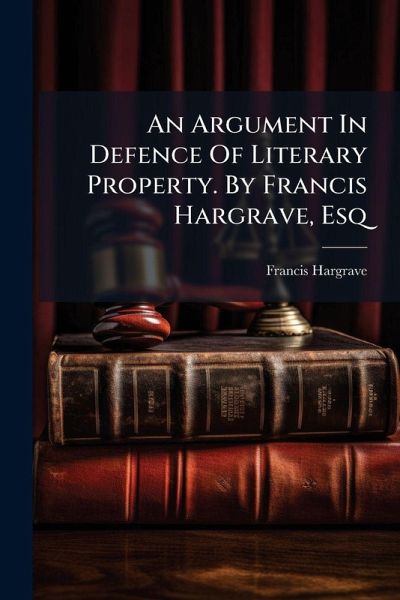
An Argument In Defence Of Literary Property. By Francis Hargrave, Esq

PAYBACK Punkte
8 °P sammeln!
"An Argument In Defence Of Literary Property" by Francis Hargrave is a significant contribution to the early discourse on copyright law. This work presents a robust defense of the rights of authors and publishers to control and benefit from their intellectual creations. Hargrave's argument, rooted in legal and philosophical principles, offers valuable insights into the historical development of copyright and its justification. The book remains relevant for scholars and legal professionals interested in the foundations of intellectual property law and the ongoing debates surrounding authorship,...
"An Argument In Defence Of Literary Property" by Francis Hargrave is a significant contribution to the early discourse on copyright law. This work presents a robust defense of the rights of authors and publishers to control and benefit from their intellectual creations. Hargrave's argument, rooted in legal and philosophical principles, offers valuable insights into the historical development of copyright and its justification. The book remains relevant for scholars and legal professionals interested in the foundations of intellectual property law and the ongoing debates surrounding authorship, ownership, and the public domain. Hargrave's detailed analysis provides a crucial perspective on the balance between protecting creators' rights and promoting the dissemination of knowledge. This work has been selected by scholars as being culturally important, and is part of the knowledge base of civilization as we know it. This work was reproduced from the original artifact, and remains as true to the original work as possible. Therefore, you will see the original copyright references, library stamps (as most of these works have been housed in our most important libraries around the world), and other notations in the work. This work is in the public domain in the United States of America, and possibly other nations. Within the United States, you may freely copy and distribute this work, as no entity (individual or corporate) has a copyright on the body of the work. As a reproduction of a historical artifact, this work may contain missing or blurred pages, poor pictures, errant marks, etc. Scholars believe, and we concur, that this work is important enough to be preserved, reproduced, and made generally available to the public. We appreciate your support of the preservation process, and thank you for being an important part of keeping this knowledge alive and relevant.



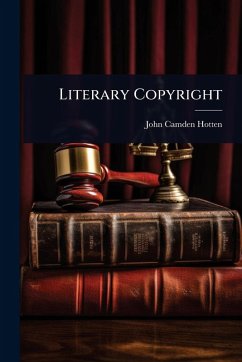
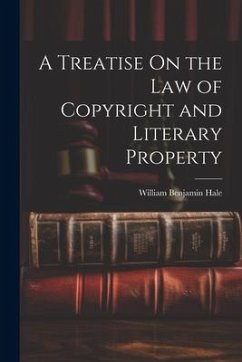
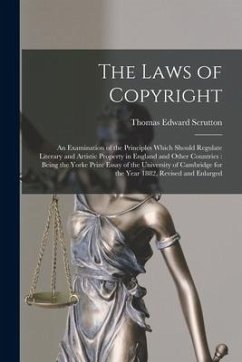
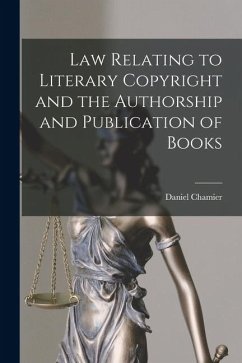

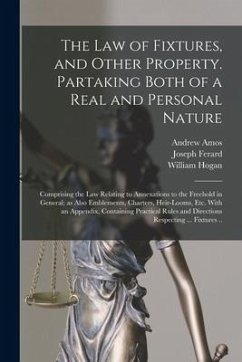
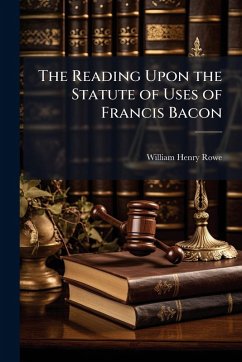
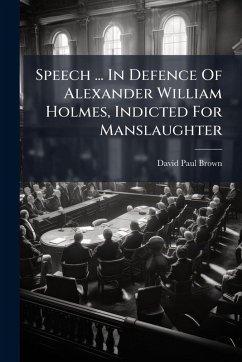
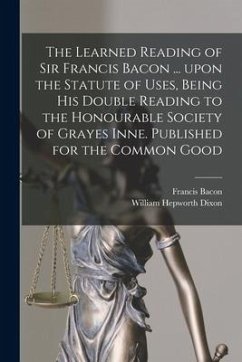
![The Life of the Right Honourable Francis North [microform], Baron of Guilford, Lord Keeper of the Great Seal, Under King Charles II. and King James II Cover The Life of the Right Honourable Francis North [microform], Baron of Guilford, Lord Keeper of the Great Seal, Under King Charles II. and King James II](https://bilder.buecher.de/produkte/65/65590/65590908n.jpg)